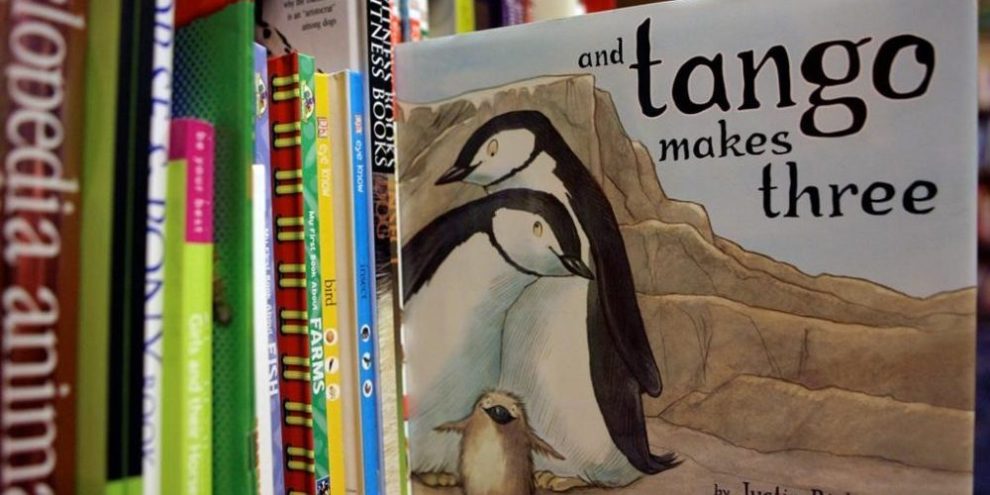
Mike Schneider, The Associated Press
Students in a Florida school district will be reading only excerpts from William Shakespeare’s plays for class rather than the full texts under redesigned curriculum guides developed, in part, to take into consideration the state’s new law that restricts classroom materials whose content can be deemed sexual.
The changes to the Hillsborough County Public Schools’ curriculum guides were made with Florida’s new legislation limiting classroom materials that “contain pornography or obscene depictions of sexual conduct" in mind. Other reasons included revised state standards and an effort to get students to read a wide variety of books for new state exams, the school district said in an emailed statement on Tuesday.
Several Shakespeare plays use suggestive puns and innuendo, and it is implied that the protagonists have had premarital sex in “Romeo and Juliet.” Shakespeare’s books will be available for checkout at media centres at schools, said the district, which covers the Tampa area.
“First and foremost, we have not excluded Shakespeare from our high school curriculum. Students will still have the physical books to read excerpts in class,” the statement said. “Curriculum guides are continually reviewed and refined throughout the year to align with state standards and current law.”
The decision in Tampa is the latest fallout from laws passed by Florida’s Republican−controlled Legislature and championed by GOP Gov. Ron DeSantis over the past two years. The first law, dubbed “Don’t Say Gay” by critics, was passed last year and prohibited classroom discussion about sexual orientation or gender identity in lower grades.
The second law passed this year extended the prohibition on gender and sexual orientation discussion to other grades. It also prevents students and teachers from being required to use pronouns that don’t correspond to someone’s biological sex and strengthens the system in which people can lodge challenges against school books. Republican lawmakers said at the time that the bill was intended to shield children from sexualized content.
Underscoring the confusion over what is allowed in schools, Florida Education Commissioner Manny Diaz on Tuesday put “Romeo and Juliet” on his list of books he is recommending that students read in August.
“This month’s book recommendations provide a variety of reading materials that students will find uplifting and will spark a love for literacy," Diaz said in a statement.
In Lake County, outside Orlando, the school district reversed a decision, made in response to the “Don’t Say Gay” legislation, to restrict access to a popular children’s book about a male penguin couple hatching a chick. The School Board of Lake County and Florida education officials last week asked a federal judge to toss out a First Amendment lawsuit that students and the authors of “And Tango Makes Three” filed in June. Their complaint challenged the restrictions and Florida’s new laws.
The lawsuit is moot because age restrictions on “And Tango Makes Three” were lifted following a Florida Department of Education memo that said the new law applied only to classroom instruction and not school libraries, according to motions filed Friday by Florida education officials and school board members.
“And Tango Makes Three” recounts the true story of two male penguins who were devoted to each other at the Central Park Zoo in New York. A zookeeper who saw them building a nest and trying to incubate an egg−shaped rock gave them an egg from a different penguin pair with two eggs after they were having difficulty hatching more than one egg at a time. The chick cared for by the male penguins was named Tango.
The book is listed among the 100 most subjected to censorship efforts over the past decade, as compiled by the American Library Association.
The “Don’t Say Gay” legislation has been at the centre of a fight between Disney and DeSantis, who is running to be the 2024 GOP presidential nominee and has made the culture wars a driving force of his campaign. DeSantis and Republican lawmakers took over control of the district governing the area where Walt Disney World is located after Disney publicly opposed the legislation.
The College Board has refused to alter its Advanced Placement psychology course to comply with Florida’s new laws, even though it includes content on gender and sexual orientation. The College Board said last week that it hoped Florida teachers would be able to teach the full course.
With students preparing to return to school this week in many school districts, it remained unclear whether any modifications to the course would be expected to comply with Florida’s rules.
banner image: The Associated Press





